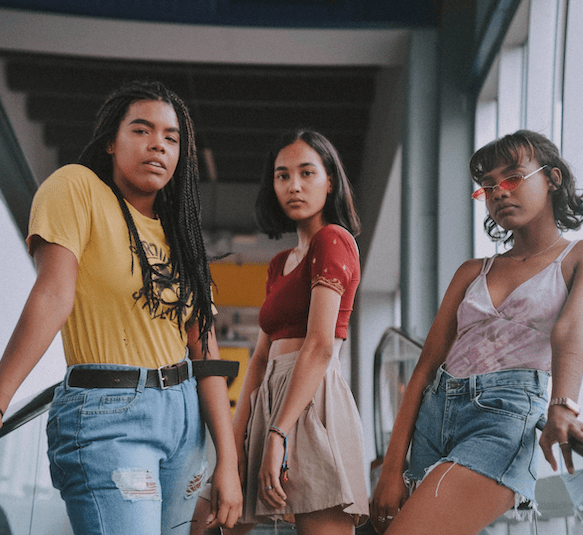The fashion industry’s changing demands for diversity
In a 2014 conversation about his futurist approach to design, Louis Vuitton creative director Nicolas Ghesquiére mused: “What I find most interesting in fashion, is that it has to reflect our time.” Yet, is this true? Does the industry really reflect current movements, or are the political influences we see on the runway really a result of a privileged agenda?
In the face of a global pandemic, the 2020/2021 season saw a huge shift in both the minds of designers and consumers. Each collection was vastly different – a product of the contemplative period that lockdown provided many creatives.
Stella McCartney spoke about reflection in an Instagram post, saying: “Like many of us, I found myself asking deep questions of myself and of the brand”. McCartney now pushes for a “brighter future” which puts sustainability at the forefront of her designs and manufacturing processes.
The new pandemic buzzword of ‘essential’ has made us rethink our buying choices
We’ve seen fashion houses taking a sombre stance on the runway, with Prada’s SS21 collection showcasing what felt like an elevated take on the infamous lockdown tracksuit, before transitioning into skirts and jumpers with daintier silhouettes. The show reflected the restraint characteristic of a uniform as even the most flamboyant pieces had a muted feel, and perhaps this is a direct reflection of the changing consumer mindset.
The new pandemic buzzword of ‘essential’ has made us rethink our buying choices. Spur of the moment purchases are being replaced by items that transcend seasons. Interestingly, Miu Miu, another Miuccia Prada creation, was more upbeat. The clothes, tailored to a younger audience than Prada, were almost reminiscent of the big milestones that many young people missed during the pandemic. Prom-like dresses were flouted down the runway, juxtaposed by the sporty silhouettes of tennis dresses and bowling jackets.
Are we seeing genuine and long-term systemic change?
Is this all sufficient? Are sustainability manifestos and the glamorisation of ‘comfy clothes’ enough to really reflect the world’s most prominent issues? The Black Lives Matter movement called for every person to examine their own privilege and acknowledge how they may have benefited from deeply embedded systemic racism and the fashion industry was no different.
When asked why it took so long to examine the prejudices rooted in the system, the founder of the Fashion For All Foundation, Hannah Stoudemire, replied: “The white-washed industry has been comfortably benefiting from racism… being non-racist is just as harmful, because it allows people to be silent. People need to be anti-racist, and anti-racism requires action”. Yet, what action have we seen? Are we seeing genuine and long-term systemic change?
We need black people ingrained within the infrastructure of the fashion industry
Vogue’s editor in chief, Edward Enninful, insists the industry actively provides black people with a true seat at the table. He said: “I implore fashion brands, publications and retailers to employ more people from diverse backgrounds … we need black people ingrained within the infrastructure of the fashion industry, not just on the other side of the camera or appearing on an Instagram feed”.
The work to tackle racism at the core of the industry starts with people like Lindsay Peoples Wagner, Teen Vogue’s editor and co-founder of the Black in Fashion Council. The Council found confusion in the corporate world about how to make real change, so worked with the Human Rights Campaign to establish an equality index score.
The industry has an important role in this zeitgeist
It holds businesses accountable and tracks their pledges to foster representation of black employees. Aurora James is another leading voice amongst the calls for the diversification of the industry. The #15PercentPledge holds the big names in fashion and retail accountable, urging them to buy 15% of their products from black-owned businesses. James makes it clear that so many of these businesses are built on black spending power, and that too many black-owned businesses are facing closure. 21% of black-owned businesses don’t think they will survive the pandemic, while only 5% of white-owned businesses reported the same outlook.
Despite London Fashion Week showcasing models of different sizes, ethnicities and backgrounds, the real change must happen behind the curtain. Off White’s Virgil Abloh stresses the importance of systemic rather than reactive change, by saying: “I want to see the HR department empathise and sympathise with why this is an important issue before they do it for PR”. The industry has an important role in this zeitgeist, but the change must go further than promises.

Comments